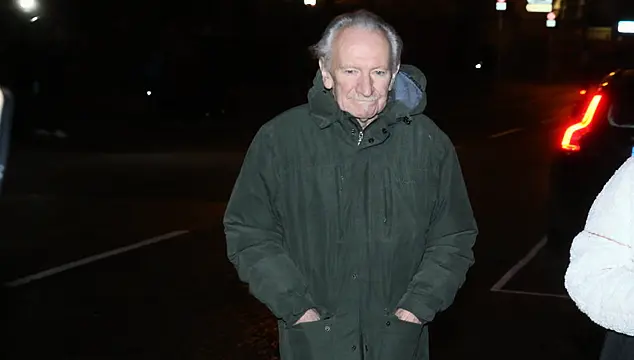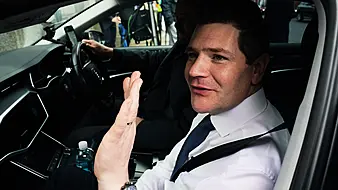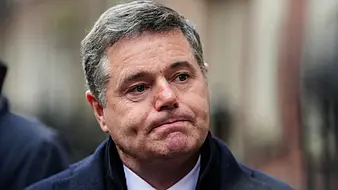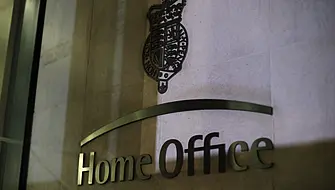An inquest jury has made a series of recommendations for the improved supervision and care of vulnerable young people after recording a verdict of suicide in the death of a son of singer, Sinéad O’Connor.
The body of Shane O’Connor (17) was found in a secluded area at the back of a housing estate outside Bray, Co Wicklow on January 7th, 2022, less than 24 hours after he was reported missing from Tallaght University Hospital at a time when he was supposed to be under supervised 24/7 one-to-one care.
A sitting of Dublin District Coroner’s Court heard the teenager had been brought to TUH’s emergency department by his mother on December 29th, 2021, after a drug overdose in what was believed to be an attempted suicide.
The inquest heard staff were not available to provide the 24/7 supervision prescribed by the hospital’s doctors. Evidence at the time he had absconded from TUH on the morning of January 6th, 2022.
A senior social worker with Tusla, Joyce Connolly, told the second day of the inquest on Tuesday that Shane and his mother had a “complex and turbulent” relationship but were also very close and “in some way dependent on each other throughout their lives.”
Ms Connolly said the singer hoped to resume full-time care of her son and there were ongoing discussions to see if that might be possible.
Ms O’Connor, who formally identified her son’s body to gardaí, died suddenly from natural causes just 18 months later in London.
The inquest heard Shane had been under the care of Tusla since 2015 and had been fostered by his half-brother, Jake Reynolds – the late singer’s eldest child – and his partner, Lia Petcu, between July 2016 and May 2018 before being placed in residential care facilities.
Asked about rules on what Shane could do when he had chosen not to engage in education, Ms Connolly said a “delicate balance” had to be struck, but they had power to stop him leaving to do what he wished.
Ms Connolly said a committee sat on January 4th, 2022 to consider applying for a special care order for Shane – which would have given Tusla power to deprive the teenager of his liberty – but deferred a decision as it did not have a report from the HSE’s Child and Adolescent Mental Health Services (CAMHS).
However, Ms Connolly said she believed Shane’s needs were more “of a mental health nature.”
She said the teenager would have been actively encouraged to attend addiction treatment services but it was “an unfortunate factor” that he did not want to stop consuming cannabis.
Ms Connolly noted that he had indicated that his life was better when he was using the drug.
However, she said childcare authorities also had no powers to prevent him accessing such substances.
Asked about possible improvements that could be made, she recommended “greater work on relationship-building” between the various State agencies involved in the care of young people.
Aoife Scanlon, a manager of the New Beginnings residential care centre in Newbridge, Co Kildare, where Shane had lived since March 2019, said he had settled in well to the facility for the first year.
However, the inquest heard the teenager seemed to deteriorate from July 2021, although Ms Scanlon said she could identify no particular trigger for it.
New Beginnings later informed Tusla that it no longer felt it could provide safe accommodation for Shane because of his complex mental health needs.
Ms Scanlon said they had continued to support him by providing staff to assist TUH and Shane’s father, Donal Lunny – a leading folk musician – with 24/7 supervision of Shane after his admission to the hospital.
The inquest heard New Beginnings stopped assisting with such supervision under Covid-19 guidelines after Shane was deemed a close contact when Mr Lunny tested positive for the virus on January 4th, 2022.
Ms Scanlon fought back tears as she recalled Shane as “a lovely, lovely lad.”
She observed that he had found approaching his 18th birthday “a very daunting experience” as he would no longer have access to specialist health and welfare services for young people.
“He struggled with being in care for a good while, but he knew he needed a level of support,” she added.
Ms Scanlon also remarked: “He was so intelligent, so smart. He knew he could make it in life and would have spoken to that.”
The inquest heard that Shane spent his days in Dublin city centre and Bray and would get lifts from Newbridge.
Ms Scanlon said the reality of the situation was that New Beginnings operated “an open unit” and the teenager could not be physically stopped from going out.
She believed that he spent a lot of time with his then girlfriend in Bray.
However, Ms Petcu expressed concern over how Shane could be allowed “out all day” at the age of 15 to do whatever he wanted.
“What adult would let a child do that,” she remarked.
There was an emotional exchange during the proceedings between several members of Shane’s family including Ms O’Connor’s father, Seán, and her daughter, Róisín Waters, which arose after a juror had raised a question about the teenager’s access to cannabis.
The coroner, Cróna Gallagher, observed that it was a “very difficult situation.”
Ms Waters left the hearing a short time later appearing visibly upset and did not return.
At another stage, Mr O’Connor described how his daughter and Shane were “very close.”
“They loved each other madly,” he observed.
Mr O’Connor outlined how the singer was also suffering mental health issues around the same time of her son’s death.
“She was not in a position to do more than she did, which was a lot,” he added.
A psychiatrist who had treated Shane at the Linn Dara in-patient psychiatric unit at Cherry Orchard Hospital in Ballyfermot, Dublin, Tara Rudd, said the teenager’s substance misuse had caused his mental health problems.
Although his condition always improved following detoxification, Dr Rudd said Shane never contemplated giving up his use of cannabis.
She said Shane had not engaged with therapeutic services at Linn Dara because he was unable to.
Dr Rudd spoke fondly of how they had argued a lot, but he would always come back to apologise and joke that he would not invite her to his housewarming.
“Spending time with his family and getting his own place was all he wanted,” Dr Rudd recalled.
She added: “I’m saddened for his family and this young man that he didn’t live the life he deserved to live,” she added.
The inquest heard that CAMHS had requested that Shane be kept at Linn Dara for the final three months before reaching his 18th birthday.
However, Dr Rudd said it was not warranted as he had no active mental health illness at the time and it would have been “unfair.”
She told the coroner that she believed the development of a specialist young adult mental health service to assist those aged 16-25 years to transition from CAMHS to adult mental services would be useful.
A jury of six men and two women made a series of recommendations including that all HSE hospitals should have clear protocols for the close supervision of vulnerable patients, particularly children.
They also called for a review of protocols for reporting missing people to ensure that gardaí would accept such reports from family members, Tusla and medical staff.
Evidence was heard that gardaí in Tallaght would not accept a report that Shane was missing from TUH staff and stated it had to be made by Tusla.
Closing the inquest, Dr Gallagher said the hearing had involved “very complex evidence” which was also “very arduous and harrowing” but expressed hope it had been of some value to his family.
The coroner acknowledged that Shane had suffered in his short life but that he had hoped as he matured that he could “move through this time of crisis.”
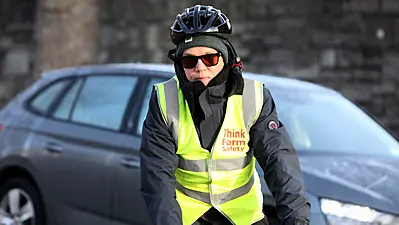
She said she could only imagine the shock of his death to his family, noting that he would have celebrated his 21st birthday next March.
If you have been affected by any of the issues raised in this article, you can freephone the Samaritans 24 hours a day for confidential support at 116 123 or email jo@samaritans.org.
You can also freephone the national Bereavement Support Line run by the HSE and Irish Hospice Foundation at 1800-80 70 77 (Monday-Friday 10am-1pm), and the contact information for a range of mental health supports is available at mentalhealthireland.ie/get-support/.
In the case of an emergency, or if you or someone you know is at risk of suicide or self-harm, dial 999/112.
